10 Best Psychiatric Service Dog Breeds
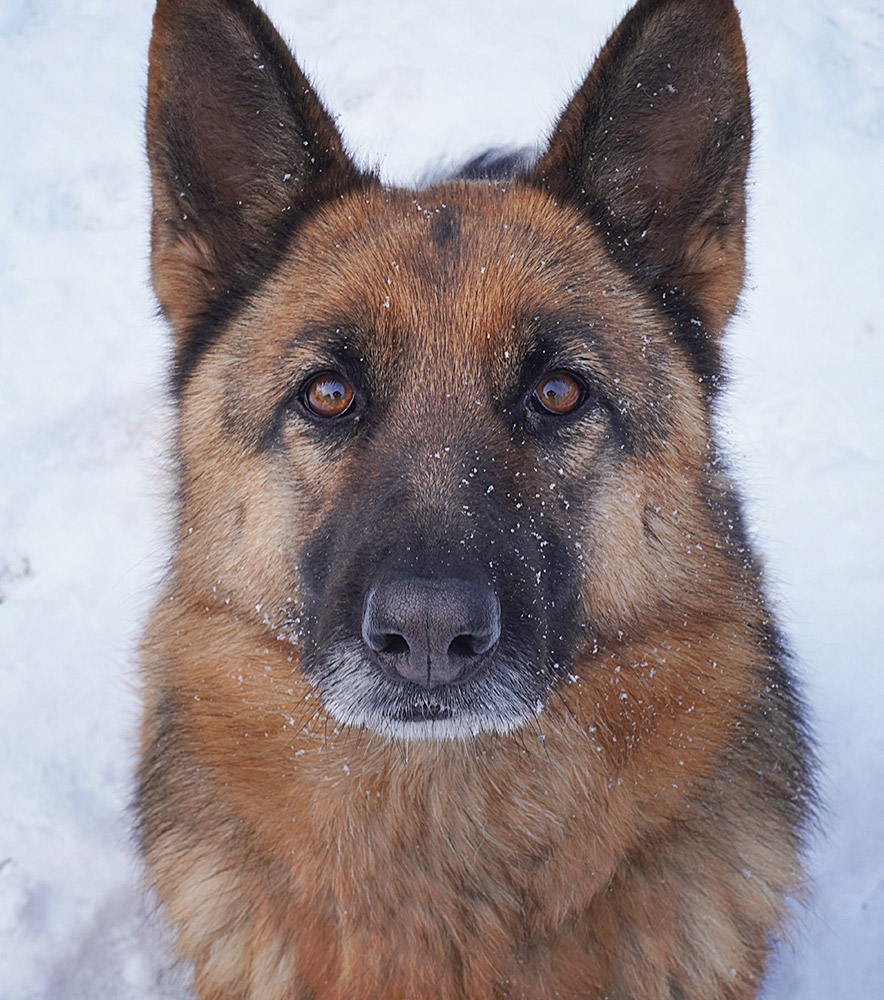
No other animal has the same kind of relationship with humans as dogs have. Over years of evolution, dogs have adapted to give companionship and loyalty to their handler. They have become so attuned to humans’ needs that they can take on roles to improve a person’s life; some even become an individual’s life-saving partner. Even though every dog is valuable, not every dog breed performs the same, as you’ll see in this list of the 10 best psychiatric service dog breeds.
The Skills of a Man’s Best Friend
Dogs’ evolution alongside our own has enabled them to attend to our needs uniquely. Dogs can read our emotions and have the cognitive ability to understand human cues, which makes them the ideal animal companion. Because of their special skills, humans also use dogs to assist them with work and daily activities. Service dogs receive special training to perform tasks that people with disabilities or disorders can’t do on their own.
One kind of service dog is a psychiatric service dog (PSD). A PSD is explicitly trained to perform tasks for an individual with a mental health disorder. They master tasks that could prevent or intervene in potentially dangerous or harmful behavior caused by an individuals’ emotional or mental disorder. This training turns a psychiatric service dog into a necessary and life-saving medical assistant.
Breeds That Make Great Psychiatric Service Dogs
Because psychiatric service dogs work closely with people who may have mental or emotional problems, there are unique traits that these dogs should possess. The following are ten dog breeds that have the qualities necessary to do the job:
1. Havanese
The Havanese breed may be small in size—the largest they grow is about 13 pounds—but it has a big personality. These dogs enjoy being close to their owners, are enthusiastic about training, and extra attentive to their surroundings. All these traits make them exceptional psychiatric service dogs. Because the Havanese is eager to perform tasks, they respond quickly to behavioral issues like repetitive or harmful actions. They’re also highly intelligent, which helps them to sense mood changes in their handlers.
2. Labrador Retriever
Labrador Retrievers can perform in many service dog roles because of their sharp intellect and calm nature. As a psychiatric service dog, Labrador Retrievers work excellently with children who have autism, gently preventing the child they’re watching from wandering away or harming themselves. Their intelligence makes Labrador Retrievers easy to train, allowing them to learn a variety of tasks quickly.
3. German Shepherd
Most people have probably seen a German Shepherd working as a police dog. This breed is often tasked with critical jobs because they’re extraordinarily reliable, dependable, and calm. Even in chaotic or new environments, a well-trained German Shepherd can focus on their task at hand, making them helpful during a psychiatric crisis.
4. Lhasa Apso
With its long, silky fur and waterfall of a tail, the Lhasa Apso might look like an elegant and swanky dog. But don’t let their good looks fool you; this breed is more than just a cute canine. Lhasa Apsos have an ancient and spiritual history, bred by Tibetan monks to serve as indoor watchdogs. Their attentive nature and cheerful personality make these dogs great psychiatric service dogs.
5. Poodle
It might be difficult to take a Poodle seriously because of their adorable curls. However, poodles are intelligent and highly trainable. As psychiatric service dogs, they are very attuned to their handler’s emotions, allowing them to intervene quickly when necessary. Their hypoallergenic hair makes them a great choice for homes with someone who may be allergic to fur.
6. Boxer
Like German Shepherds, Boxers are also a go-to breed when people are looking for service or working dogs. Smaller than German Shepherds, Boxers are considered medium-sized dogs and are perfect for people who want a solid but smaller dog. Boxers are eager to please and learn quickly. Although vigilant, Boxers are a calm and good-natured breed, making them ideal as psychiatric service dogs.
7. Cavalier King Charles Spaniel
There’s an old soul in the Cavalier King Charles Spaniel, making them calm and collected. They’re also loyal and attentive to their owners and bond closely with them, making them ideal psychiatric service dogs for people who struggle with depression or PTSD. Their high level of intelligence enables them to identify and intervene when they see harmful or atypical behaviors in their handlers.
8. Doberman
Most people are familiar with Dobermans in their role as working dogs for the police, but they also make outstanding psychiatric service dogs. Although Dobermans have a reputation for being tough watchdogs, they can be affectionate and loyal. Their solid frames and size allow them to gently step in to prevent a psychiatric crisis or prevent dangerous behaviors.
9. Border Collie
Border Collies are photogenic and attractive dogs, but they’re more than just a pretty face. According to the Border Collie Society of America, Border Collies are highly trainable. They also go on to state that this breed has the “uncanny ability to reason.” This trait is what makes the Border Collie inordinately suitable as a psychiatric service dog.
10. Miniature Schnauzer
The Miniature Schnauzer’s odd-ball looks are eye-catching, but their quirky personalities can light someone’s day. They’re hugely popular with children and are easy to train, making them perfect psychiatric service dogs for autistic or anxious young people. Highly adaptable and attentive, these dogs can assist in any environment.
Psychiatric Service Dogs Are More Than a Best Friend
Though it’s true that most pets provide their owners with companionship and can improve mental health, not all dogs can be psychiatric service dogs. To qualify as a psychiatric service dog, a dog undergoes extensive skills training to perform a specific task that a person with a mental or emotional disorder can not do for themselves. These dogs help their handlers live healthier and happier lives through their daily service. Psychiatric service dogs are more than pets and much more than a best-friend—they are life-savers.
About the Author: The writing team at Service Dog Certifications is made up of folks who really know their stuff when it comes to disability laws and assistance animals. Many of our writers and editors have service dogs themselves and share insights from their own experiences. All of us have a passion for disability rights and animals.
15 comments
Leave a Reply Cancel reply
Latest Posts
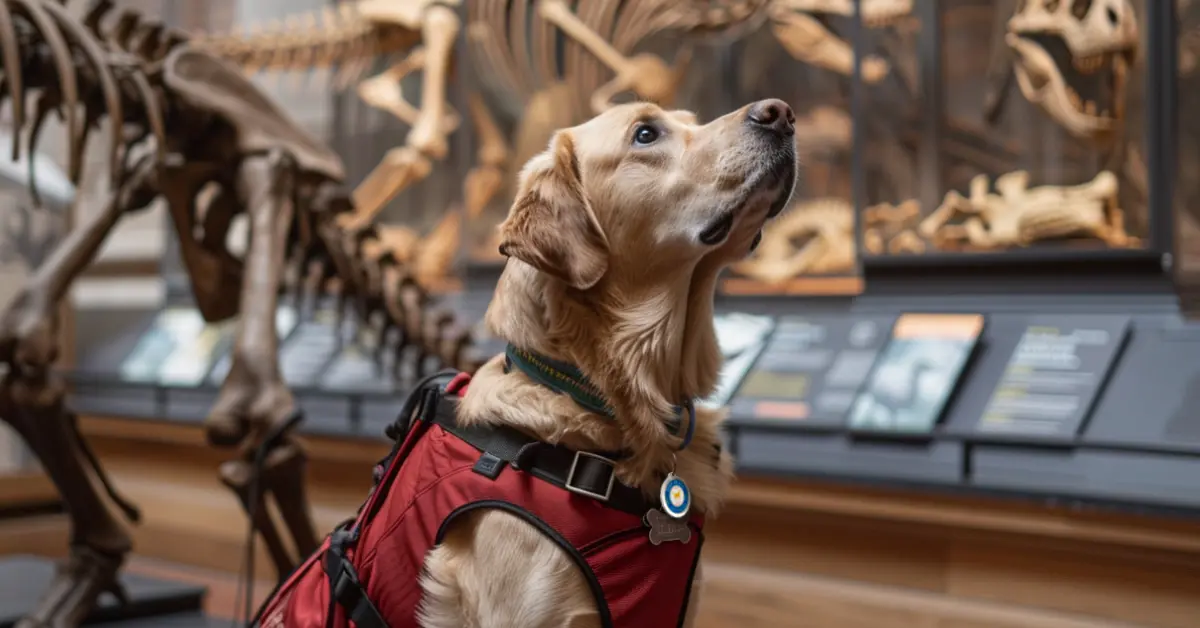
Can you bring a service dog to a museum?
Yes, you can bring your service dog to the museum! All the major U.S. museums welcome guests with service animals in accordance with the Americans with Disabilities Act (ADA). There are some areas, however, that might be off-limits. Here’s what you should know if you plan to spend a day at the museum with your […]

Read More
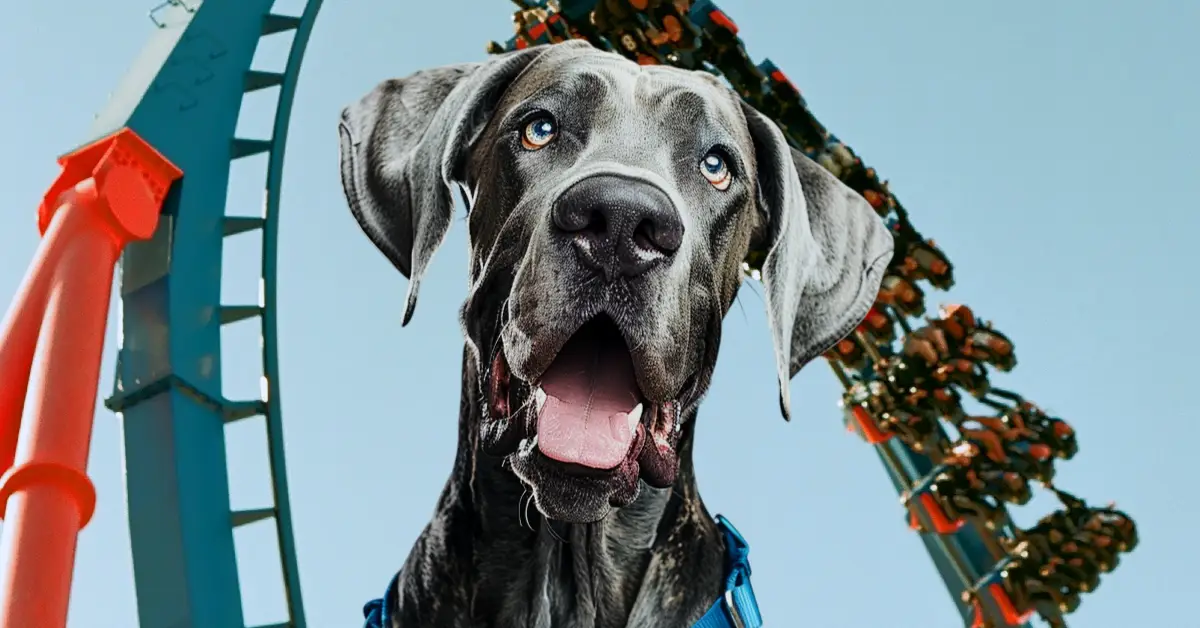
How to Bring a Service Dog to Six Flags Magic Mountain
Service dogs are welcome at Six Flags Magic Mountain so long as they are, according to Six Flags, “trained to do work or perform tasks for people with disabilities.” Of course, your dog must be housebroken and remain on a leash or harness and under your control while at the park — and the park […]

Read More
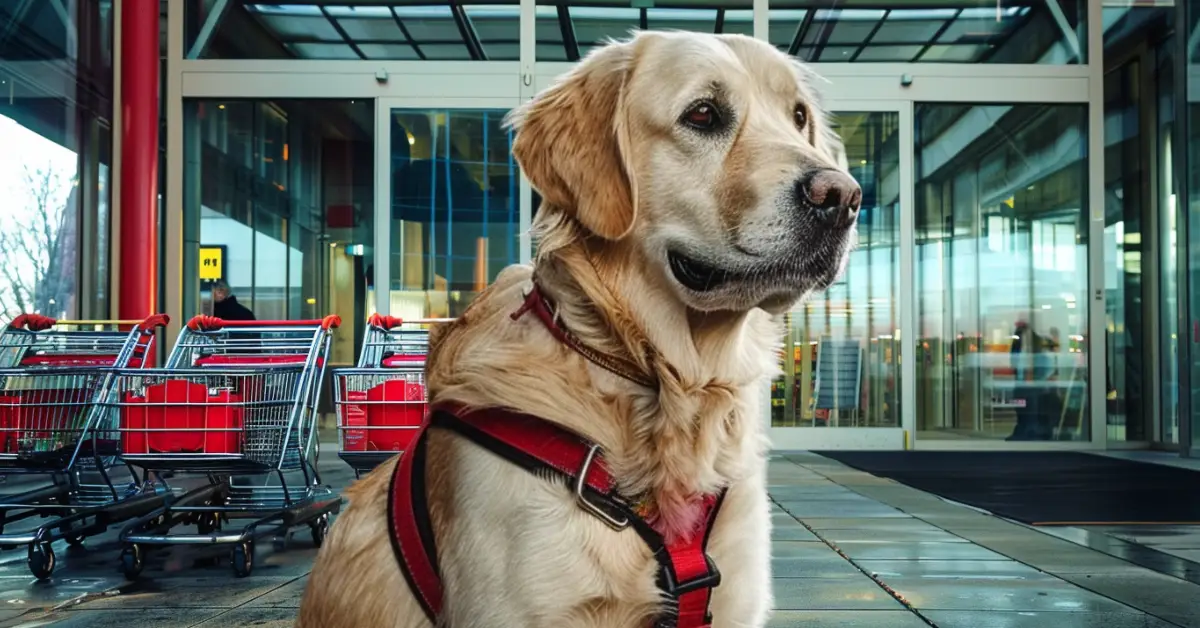
When Stores Can Refuse Your Service Dog
According to the Americans with Disabilities Act (ADA), service dogs should be allowed into any store most of the time. A store owner can legally exclude a service dog if they are actively growling, snapping at, or frightening customers, or if the dog is obviously out of the control of its owner. Ordinary behaviors — […]

Read More




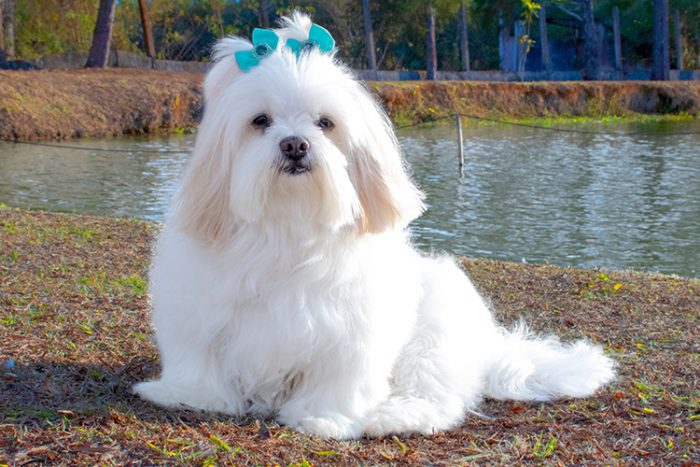

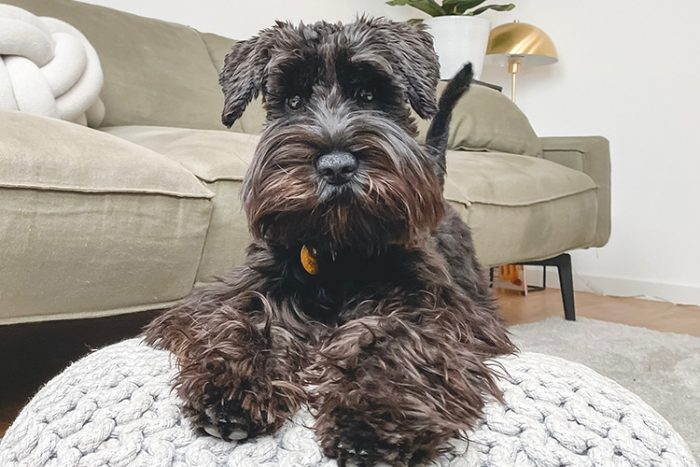

Thomas zechmann served in the military for 33 years and has pds and is on medication and cannot go anywhere with out his small dogs carry s a doctors prescription and letter this weekend end we fly Alaska Airport and they were very i would say just mean told them to call his doctor or the ada they bought a from to be filled that took a lot of time and made things worse with him this should not ever happen
Thank you for your service! I’m very sorry to hear about the trouble. Unfortunately, airlines have become increasingly wary about service dogs. For what it’s worth, remember the law is on your side. But I know that doesn’t repay for the stress and time lost in disputes like this. Just hope it doesn’t happen again. Take care.
What you experienced is a crime! You,& your service animal by law are granted the same access the public has. That means anywhere!
You are service veteran? & that’s how you were treated?You,& your brave brothers,& sisters in arms. With that blood shed in battle. Are the reason I freely do,& say the things I do. Thank you brave warrior for your sacrifice, & commitment!
I usually fly through American Airlines. On their website, there is a form you download. Then take this to your primary care provider. It’s a form basically explaining to whomever. That you need your Scruffy for your anxiety,during the time you are on a plane that’s in flight. I always request a window in the 1st row by the bulkhead, on the right side of the plane. I am usually let off the plane after 1st class,&/or business class empties. My dog is small enough to fit next to me on the seat. My service animal Larry is well trained,& with great behavior in public. American has never requested that I put him in a carrier.
We suggest checking out this article for more information on flying with PSDs: https://www.servicedogcertifications.org/flying-with-a-service-dog-guide/
Thank you for your service! For myself dealing with some of the same issues and needing to travel to see family, it helps a lot to be over pre pared for your trip even more so these days. Along with my letters and prescriptions that I carry with me I always contact the airline directly after booking and paying for my ticket. I let them know I am traveling with a service dog and that I will need extra time boarding and extra legroom on the plane. I also am if there are airline specific forms that need to be filled out and if they could help me get them filled out while on the phone with them. That I know everything is in place before I travel. It can be a lot of time before hand but prevents additional trauma at the airport before the flight.
During the pandemic, I bought a Samoyed to be PSD. worst mistake ever. He exhibited hyperactivity at 6-9 months. I paid for training. I thought it was just a puppy phase but now he is 2 years old , easily distracted and lunging at strangers STILL. considering re-home and getting a different breed. he is not servicing his purpose. I do not need a dog i need to constantly entertain and pay to go to daycare. I need a service dog.
Train your dog it’s that simple. Don’t just be a lazy sorry ass owner and just re-home him because your too lazy to put the time and effort in to teach him to correct way to do things. The fault here is yours not your dog. Be a responsible dog owner and train your dog. It’s 🚫 hard it’s only consistent training and the time and effort it takes to put in that is making you want to re home him. If your really don’t want to do the training then just don’t even bother to get another dog you don’t deserve to own one.
Researching the breed would have been the smartest thing. Huskies are very high drive and needs constant training and attention. You can’t just get any breed because that’s what you want or think you want without research and the work.
clearly whatever training you paid for, you got scammed. if it was a certifiable trainer then your dog shouldn’t be acting out and chances are you also didn’t put the work in. you can rehome him or whatever, but if you’re going right back to whatever trainer you went to the first time.. only to end up rehoming ANOTHER dog.. then the fault becomes your own, not the dogs’.
Not any dog can be a service dog. Simple as that. You don’t just get a dog and decide you want it to be a service dog. Service dogs are individually vetted for their capacity to become SDs. You flat-out failed yourself here by not doing your homework.
Can these dogs be trained to identify when certain symptoms are about to occur?
There are service dogs that are trained to detect when certain medical events (such as a seizure) are about to occur.
Can any dog do any thing you need help with like anxiety or is js one dog that can help with anxiety?
Whether a dog is suitable to serve as a psychiatric service dog or emotional support animal for anxiety depends more on the particular dog’s unique traits than its breed. For example, you’d want to consider the demeanor and temperament of the dog, its trainability, and its suitability for the tasks at hand if it is being considered for service dog duty.
Hi, just starting this process so am pleased to read great comments. I have a new Mini Schnauzer & am diagnosed w/ptsd, after 30 yrs Critical-Care nursing. My little guy is “Teddy” & I got him at 5months old. To my surprised he was not house trained and hyper. Paid $2500 so “in for a penny, in for a pound,” I had him boarded at a special doggie place and then went to classes where we both got trained together. He’s a totally different dog now. That said, to make us a travel- worthy team I am now investing in more focused training just because he’s still a puppy and has to be presentable in crowds & w/children.